Vitamin B3 is a water-soluble vitamin that is essential for the proper functioning of the body. It plays a crucial role in metabolism, converting food into energy, and maintaining healthy skin, nerves, and digestion. However, what many people do not know is that Vitamin B3 also has significant benefits for the skin when applied topically in the form of cosmeceuticals.
Cosmeceuticals are cosmetic products that contain biologically active ingredients that have medicinal or drug-like properties. These products are designed to provide visible improvements to the skin beyond traditional cosmetic products. Vitamin B3 is a popular ingredient in cosmeceuticals due to its ability to address a variety of skin concerns, including aging, hyperpigmentation, acne, and inflammation.
In this article, we will explore what Vitamin B3 is and how it benefits the skin. We will also dive into the science behind Vitamin B3 and skin health, including how it helps combat aging and acne, improve the skin barrier function, and boost collagen production. Additionally, we will provide tips on how to incorporate Vitamin B3 cosmeceuticals into your skincare routine and discuss clinical studies on their efficacy.
What is Vitamin B3 and How Does It Benefit Your Skin?
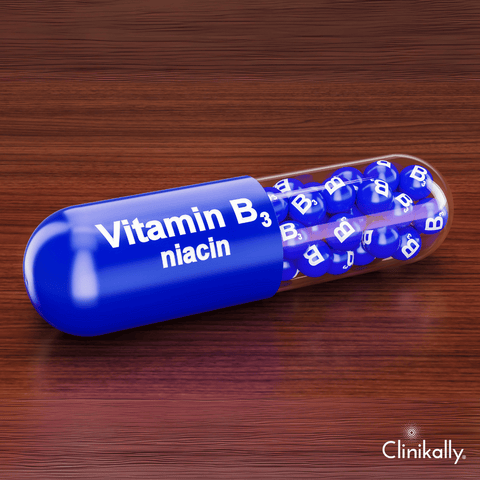
Vitamin B3 is a water-soluble vitamin that is essential for many bodily functions, including maintaining healthy skin. When it comes to skincare, Vitamin B3 is known for its ability to improve skin texture, tone, and overall appearance. It also helps to reduce redness, irritation, and inflammation, making it an ideal ingredient for those with sensitive or acne-prone skin.
Niacinamide: A Powerful Ingredient in Cosmeceuticals
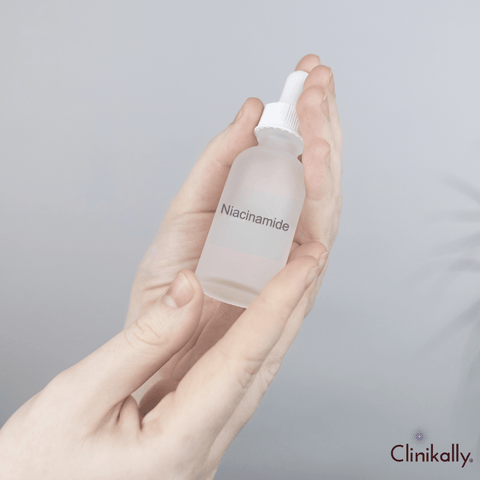
Niacinamide is a form of Vitamin B3 that is often used in cosmeceuticals due to its potent skin benefits. It has been shown to help reduce hyperpigmentation, improve skin elasticity, and promote collagen production. Niacinamide also has anti-inflammatory properties that can help to soothe and calm irritated skin.
The Science Behind Vitamin B3 and Skin Health
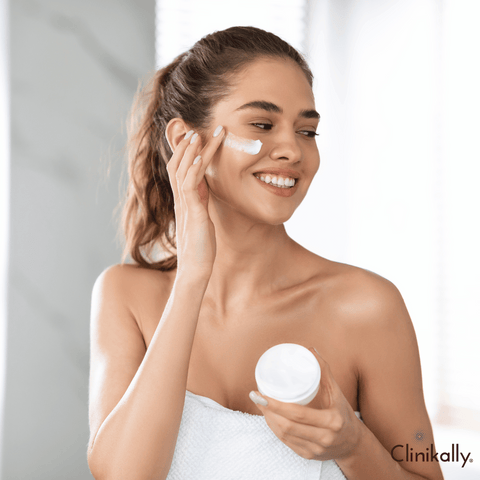
Studies have shown that Vitamin B3 can help to improve the skin's barrier function, which is essential for maintaining healthy skin. A strong skin barrier can help to prevent moisture loss, protect the skin from environmental stressors, and reduce the risk of developing skin conditions such as eczema and psoriasis.
How Vitamin B3 Helps Combat Aging and Acne

As we age, our skin naturally loses collagen, which can lead to wrinkles and fine lines. Vitamin B3 has been shown to help boost collagen production, which can help to reduce the signs of aging. Additionally, Vitamin B3 can help to reduce acne and inflammation, making it an ideal ingredient for those with acne-prone skin.
Anti-Aging Benefits of Vitamin B3 Cosmeceuticals
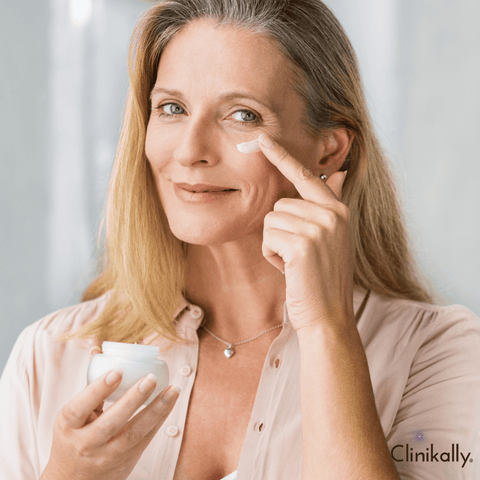
Vitamin B3 has been shown to have numerous anti-aging benefits for the skin. In addition to boosting collagen production, it can also help to improve skin texture, tone, and overall appearance. It has also been shown to help reduce the appearance of dark spots and hyperpigmentation.
How Vitamin B3 Helps Reduce Acne and Inflammation
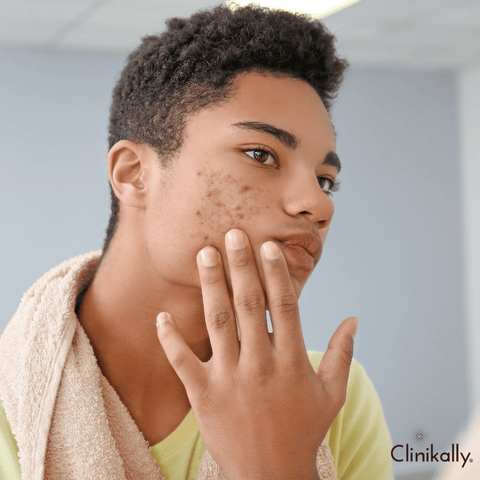
Acne and inflammation are common skin concerns that can be difficult to treat. However, Vitamin B3 has been shown to be effective in reducing both acne and inflammation. It works by regulating sebum production, which can help to prevent clogged pores and breakouts. Additionally, its anti-inflammatory properties can help to soothe and calm irritated skin.
Vitamin B3 and the Skin Barrier Function
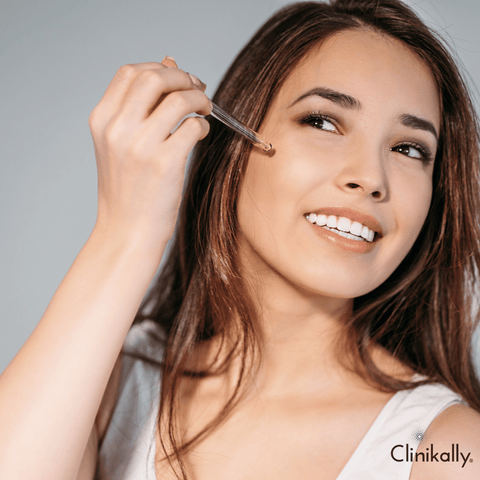
The skin barrier is responsible for protecting the skin from environmental stressors and preventing moisture loss. Vitamin B3 has been shown to improve the skin barrier function, which can help to keep the skin hydrated and healthy. This can be especially beneficial for those with dry or sensitive skin.
In conclusion, Vitamin B3 is a powerful ingredient in cosmeceuticals that can provide numerous benefits for the skin. Its ability to improve skin texture, reduce inflammation, and boost collagen production make it an ideal ingredient for those looking to maintain healthy, youthful-looking skin. Whether you are dealing with aging skin, acne, or hyperpigmentation, incorporating Vitamin B3 into your skincare routine can help to improve your overall skin health.
How to Incorporate Vitamin B3 Cosmeceuticals into Your Skincare Routine
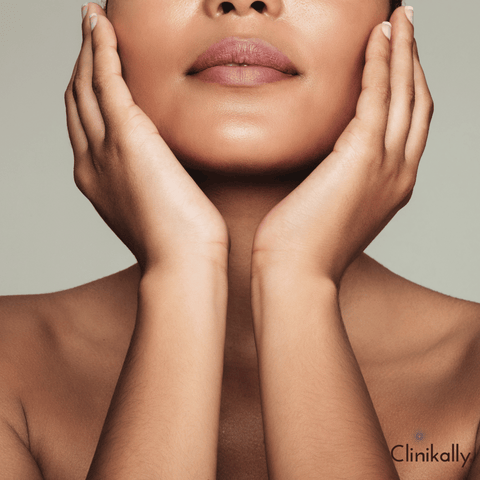
Now that we have explored the benefits of Vitamin B3 for the skin, let's take a look at how to incorporate it into your skincare routine.
Topical Vitamin B3 Application: Moisturizers and Serums
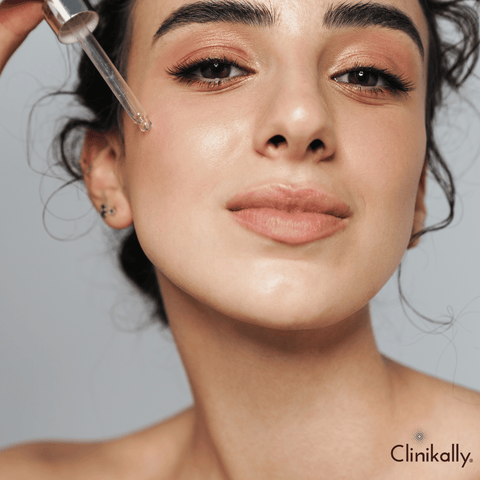
One of the easiest ways to incorporate Vitamin B3 into your skincare routine is through the use of topical products such as moisturizers and serums. Look for products that contain niacinamide, a form of Vitamin B3 that is easily absorbed by the skin. When using these products, apply them to clean, dry skin in the morning and evening for the best results.
Addressing Hyperpigmentation and Dark Spots with Vitamin B3
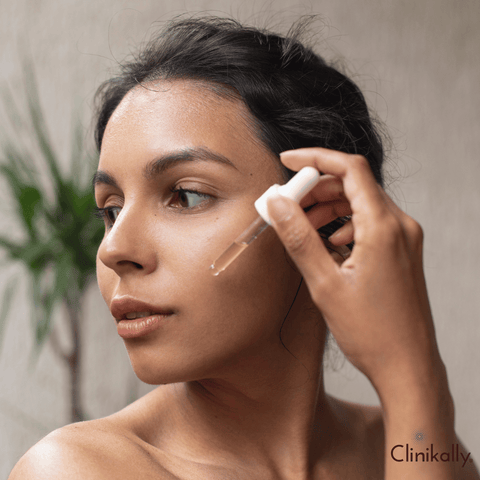
Hyperpigmentation and dark spots are common skin concerns that can be difficult to treat. However, studies have shown that Vitamin B3 can help to reduce the appearance of these issues. Look for products that contain 5 to 10% niacinamide, as this range of concentration has been shown to be most effective in addressing hyperpigmentation and dark spots.
Using Vitamin B3 to Combat UV Damage and Wrinkles
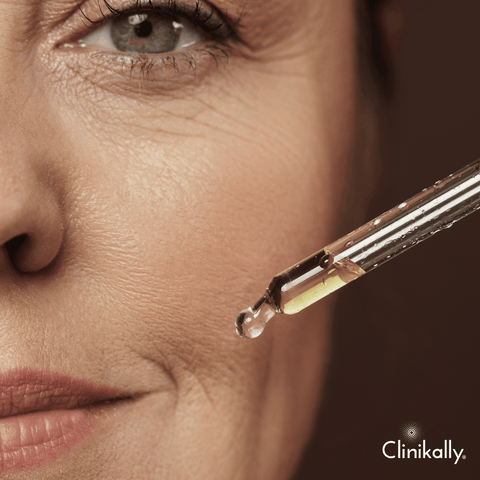
UV damage and wrinkles are also common skin concerns that can be addressed with the use of Vitamin B3. Look for products that contain antioxidants such as Vitamin C and E, which can help to protect the skin from UV damage. Additionally, Vitamin B3 can help to boost collagen production, which can help to reduce the appearance of fine lines and wrinkles.
Clinical Studies on Vitamin B3 Cosmeceuticals

Numerous clinical studies have been conducted on the use of Vitamin B3 in skincare. Let's take a closer look at some of these studies.
Research on the Efficacy of Vitamin B3 in Skincare

Several scientific studies have evaluated the effects of topical niacinamide application on skin health. One such study reported significant improvements in fine lines, wrinkles, and hyperpigmentation after the use of a topical formulation containing 2% niacinamide. This study involved 50 women aged between 40 and 60 years, and the results demonstrated visible improvements in the appearance of fine lines, wrinkles, and skin tone after 12 weeks of regular use. Another study found that a niacinamide-containing moisturizer significantly improved skin hydration, and barrier function, and reduced trans-epidermal water loss (TEWL) in 50 women aged between 18 and 60 years after two weeks of regular use.
These studies demonstrate that niacinamide has the potential to improve various aspects of skin health and function. As a result, it has become a valuable ingredient in cosmeceuticals aimed at improving skin health and appearance. Niacinamide's ability to enhance skin hydration, reduce fine lines and wrinkles, address hyperpigmentation, and improve the skin barrier function has made it a popular ingredient in many skincare products recommended by dermatologists. These findings highlight the potential benefits of niacinamide and provide a scientific basis for its inclusion in cosmeceuticals.
Dermatologist-Recommended Vitamin B3 Cosmeceuticals
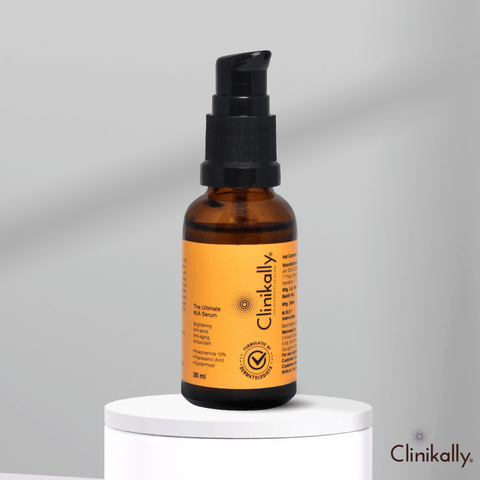
Dermatologists often recommend Vitamin B3 cosmeceuticals to their patients due to their numerous skin benefits. Some popular products recommended by dermatologists include Clinikally The Ultimate NIA Serum (10% Niacinamide) and Peltos Niacinamide Sleep Mask.
Final Thoughts on Vitamin B3 and Skin Care
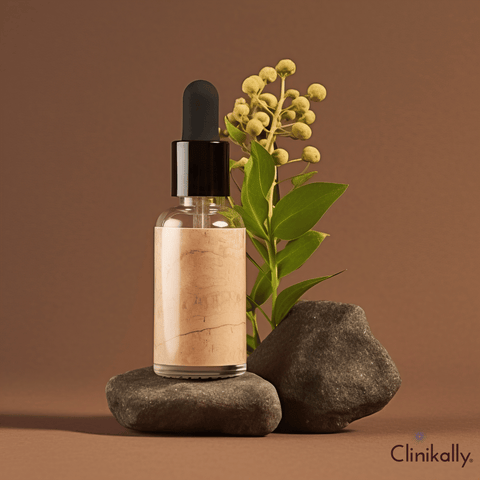
In conclusion, Vitamin B3 is a powerful ingredient in cosmeceuticals that can provide numerous benefits for the skin. Its ability to improve skin texture, reduce inflammation, and boost collagen production makes it an ideal ingredient for those looking to maintain healthy, youthful-looking skin. By incorporating Vitamin B3 into your skincare routine through the use of moisturizers and serums, you can address a variety of skin concerns such as hyperpigmentation, UV damage, and wrinkles. Be sure to look for dermatologist-recommended products and consult with a skincare professional if you have any concerns about incorporating Vitamin B3 into your routine.








































